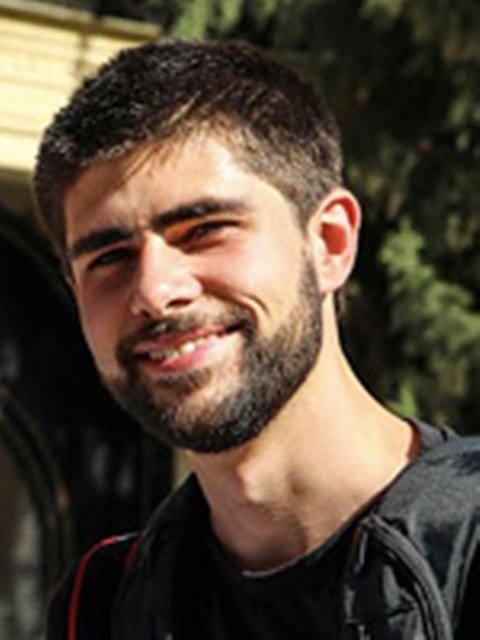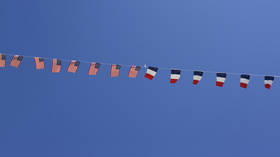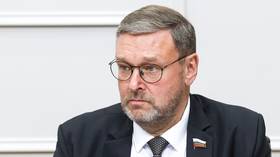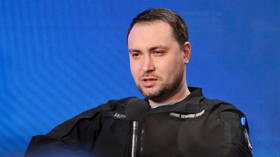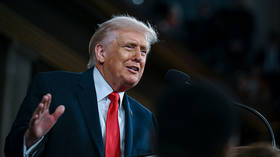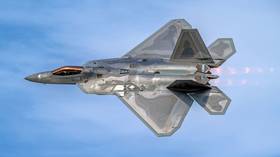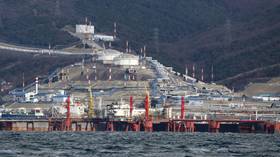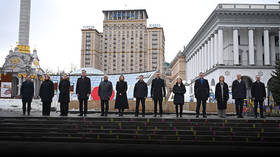Obama’s killing fields in Yemen
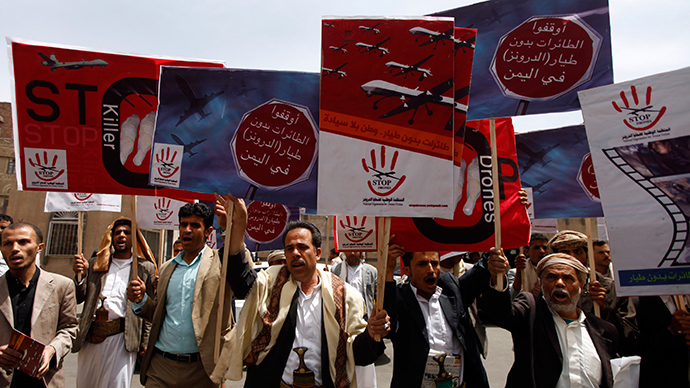
Washington’s drone program isn’t making Yemen safer – it is traumatizing and radicalizing communities, and swelling the ranks of Al-Qaeda.
The Obama administration has recently taken part in a joint operation with Yemeni forces that has produced the highest death toll of any confirmed drone strike in Yemen so far this year, according to sources from the Associated Press (AP).
Yemen’s state media claims that the victims of the attack were among the most dangerous elements of Al-Qaeda, and that the strike was based on confirmed intelligence that the targeted individuals were planning to target Yemen’s civil and military institutions. Yemeni officials claim that the target site, located in remote mountainous regions in the country’s troubled south, was one of the few examples of permanent infrastructure setup by Al-Qaeda in the Arabian Peninsula (AQAP) to train fighters and store armaments.
The strike allegedly took place with regional cooperation and assistance from Saudi Arabia, and due to official secrecy provisions, the United States does not have a legal obligation to acknowledge or comment on the strikes undertaken by the Central Intelligence Agency (CIA).
The exact death toll varies from source to source, but more than a dozen people have been killed at minimum, with at least three civilian causalities. Witnesses say that a car carrying the alleged militants was hit with a missile as it drove by a vehicle carrying civilians, who were also killed. A second strike on the area was launched shortly after.
Yemen’s government officially claims that 55 alleged militants have been killed so far, and the Supreme Security Committee - which includes the country’s intelligence chief, defense and interior ministers - and President Abed Rabbo Mansour Hadi approved the strike.
Hadi, who came to power in February 2012 after he stood unopposed in elections, is a staunch supporter of the US drone program, despite the high number of civilian casualties incurred by the strikes. AQAP, active in the south-central regions of the country, is a small but pervasive organization whose tactics include using sophisticated car bombs and suicide attacks that have been bold and deadly in their fight against the government in Yemen’s capital, Sanaa.

Criminalizing drones
Yemen, the only state on the Arabian Peninsula to have a purely republican form of government, is in the midst of an ongoing political and security crisis prompted by divisions between various movements and factions, who are themselves divided between Sunni and Shiite sects of Islam. The central government in Sanaa commands little authority outside the capital, and faces a widely popular secessionist movement in the south, an entrenched Shiite rebel movement in the north, and a scattered AQAP insurgency campaign that has succeeded in gathering adherents largely due to their resentment of the Obama administration’s drone warfare campaign throughout the country.
Yemen has the youngest population in the world, with an unemployment rate as high as 40 percent, while half the population still lives below the poverty line.
Longtime leader Ali Abdullah Saleh submitted his resignation in 2011, following nationwide protests calling for an end to corruption and greater representation. The collective vision for reform shared by nearly all sides of this highly polarized country failed to progress following Saleh’s removal, and like other Arab nations who experienced a change in power during the period known as the Arab Spring, militias and extremist elements took advantage of the precarious security situation to embolden themselves.
In an effort to reconstruct Yemeni society and assuage various movements and communities who feel unrepresented throughout the country, Hadi has channeled his administration’s efforts into UN-backed reconciliation talks known as the National Dialogue Conference (NDC), which impressively brought together over 500 activists and representatives from a diverse array of backgrounds to reform the security apparatus and administrative structure of the country, and draft a new constitution that would be the basis for both presidential and parliamentary elections in 2014.
In a rare show of consensus, participants at the conference voted to criminalize the use of drones for extrajudicial killing, which have enraged average Yemenis from all walks of life. Drone strikes were made technically illegal since 2013, but their continued prevalence in partnership with Yemeni security forces dangerously delegitimizes the government in Sanaa and puts Hadi in an exceedingly awkward position at a time when the government is distrusted for colluding with foreign powers.
The message sent by the delegates of the NDC, which is the most democratic and representative reflection of Yemeni society that currently exists, is that the use of drones are an affront to the sovereignty and dignity of the state, opening the possibility that President Hadi may be criminally persecuted if the current policy continues.

Killing with impunity
President Obama’s speech on his administration’s drone warfare program in 2013 was widely perceived as a convincing and compelling defense of an otherwise controversial policy.
In describing the elaborate precautions and high standards taken prior to launching a strike, Obama claimed, “there must be near-certainty that no civilians will be killed or injured.” The president acknowledged how any US military activity risks creating animosity and enemies in the target country, and spoke of the high threshold set for taking lethal action, in respect for the dignity of every human life.
According to the rules in place under the Obama administration, targeted strikes can only take place when capturing a suspect would not be feasible, when the authorities of the country in question could not or would not address the threat, and when no other reasonable alternatives were available.
In the six months since Obama delivered his speech on the rules for using armed drones, reports indicate that covert strikes in Yemen and Pakistan incurred more casualties when compared to the six months before the speech was given.
Behind the US president’s carefully-selected language and various moral assurances, is a covert assassination program that has operated under an accountability and transparency vacuum, where basic statistical data is withheld under the blanketing justification of protecting national security, and hundreds of innocent civilians have been targeted and killed with near-total impunity.
The facts that have been established about the Obama administration’s program are profoundly disturbing. The United States is bound to abide by international human rights law outside of a defined conflict zone, which would apply for its operations in Yemen and Pakistan, where war has not been declared. In such a legal environment, targeted killings can only take place when strictly unavoidable and necessary to protect life, and due to the official secrecy policies surrounding the Obama administration’s drone program, US officials are not legally obliged to acknowledge strikes or provide evidence needed to substantiate alleged threats to the degree that would satisfy the law enforcement standards that govern the intentional use of lethal force outside armed conflict.
The legal criterion to justify a strike is determined in secret by the White House with advice from the Justice Department, but with no oversight or accountability. Obama’s so-called ‘near-certainty’ standard and his administration’s definition of an ‘imminent threat’ are not open to independent review, and are taken unilaterally by the executive branch. As noted by UN Special Rapporteur Ben Emmerson, the United States violates international law by targeting of persons directly participating in hostilities who are located in non-belligerent states.
The known criteria for justifying lethal force has proven to be shockingly indiscriminate, to the point where the president’s ‘near-certainty’ standards can never logically be met. The Obama administration, according to investigations, targets individuals based on their exhibiting of ‘behavioral characteristics’ that are deemed typical of militants, rather than making strikes based on the confirmed identity of a target.
Such use of ‘signature strikes’ has resulted in the arbitrary targeting of any military-age male in a given strike vicinity on the presumption that he is a combatant, and directly targetable. The ‘double tap’ technique involves launching an initial drone strike, which is followed by a second strike that targets rescuers and first responders, a tactic that Al-Qaeda and other terrorist outfits have made use of in the past.
The double tap relies on the assumption that the initial target is a militant, and all those who converge on the scene of the initial strike must be militants themselves. Such a strategy cannot possibly meet the stringent requirements needed to avoid the killing of civilians, and can only result in actions that can be described as war crimes or extrajudicial killings.

An undeclared war
Obama’s speech marked the first formal public acknowledgement of a US citizen’s death in a drone strike. Anwar al-Awlaki, an American-born cleric of Yemeni descent and a US citizen, was killed by a drone strike in Yemen in May 2011. In describing his criteria for an extrajudicial targeted strike, Obama claims there is no difference between a foreign terrorist and a terrorist with US citizenship.
Al-Awlaki’s assassination and the subsequent killing of his 16-year-old son, also an American national, sets an alarming precedent. At one time, Anwar al-Awlaki was known to be a moderate cleric who denounced terrorism and violence. At some stage between the events of 9/11 and the invasion of Iraq in 2003, Anwar al-Awlaki underwent a profound change in his political orientation and began to preach jihad, in response to what he viewed as the United States engaging in a war against Islam and Muslim civilians.
Just as Anwar al-Awlaki’s views morphed toward the violent fringe as a reaction to US policy, the radicalization of communities and traumatized survivors of drone strikes throughout Yemen provides AQAP with a steady flow of militants seeking to avenge their families' deaths by harming the United States. The Obama administration and the Yemeni political elite may view drone strikes as a short-term fix, but the radicalization of growing swathes of society will prove to be a major liability for any future government in power.
Washington has assured the public that the American role in Yemen is highly constrained, and held in accordance with a mandate to target members of Al-Qaeda approved by Congress after 9/11. The scope and breadth of covert operations undertaken by the CIA and secretive paramilitary unit Joint Special Operations Command (JSOC) are impossible to ascertain, but Washington’s role in Yemen’s civil wars are much deeper than what the public imagines.
The inhumanity of this war comes to the fore in incidents such as the US bombing of a wedding convoy in December 2013, killing 12 civilians. Consider the vile injustice meted out in 2009 to the people of al-Majalah, a Bedouin village that became the target of US cluster-bombing, killing 41 civilians, including nine women and 21 children. Abdulelah Haider Shaye, a Yemeni journalist who exposed the American slaughter at al-Majala, was jailed by authorities and framed as an Al-Qaeda collaborator. His original release from prison was blocked by the personal intervention of President Obama, who phoned former Yemeni President Saleh and lobbied for Shaye to remain in custody.
Contrary to claims that drones only target those high-level figures who pose an imminent threat to the US homeland, reports indicate that low-level fighters, local commanders, and even figures in Yemen’s own military have been targeted by US drones – not because they present any risk to US national security, but because they are political opponents of the current US-backed regime in Sanaa.
The Obama administration’s dirty wars and covert operations in Yemen represent a glaring evasion of justice and accountability that will continue to sow wanton killing and perpetual conflict if left unchecked.
The statements, views and opinions expressed in this column are solely those of the author and do not necessarily represent those of RT.
The statements, views and opinions expressed in this column are solely those of the author and do not necessarily represent those of RT.
